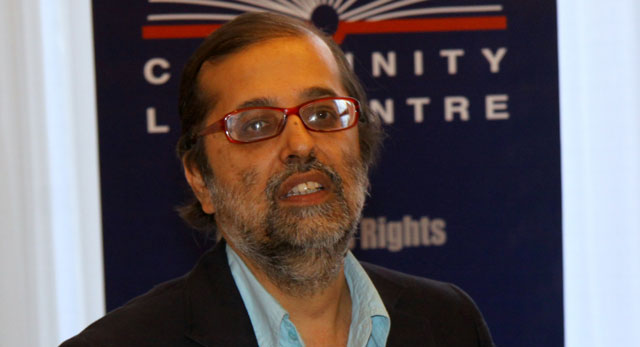 Communications minister Yunus Carrim demonstrated in parliament this week that government may finally be dealing decisively with the impasse over digital terrestrial television that is undermining efforts to get more South Africans connected to broadband.
Communications minister Yunus Carrim demonstrated in parliament this week that government may finally be dealing decisively with the impasse over digital terrestrial television that is undermining efforts to get more South Africans connected to broadband.
Carrim’s remarks to parliament’s portfolio committee on communications point to possible imminent progress in the migration from analogue to digital terrestrial television.
The minister provided the portfolio committee with what were clearly well thought-out insights into what will inform government’s decision on whether to support an encryption-based control system in the set-top boxes that government plans to subsidise for up to 5m poorer households. Cabinet could make a call on the matter as soon as its next meeting in early December.
E.tv is lobbying hard for the control system, saying it’s necessary, among other things, to allow free-to-air broadcasters to compete more effectively with MultiChoice, which owns DStv. MultiChoice, in turn, has accused e.tv of wanting government to subsidise its entry into the pay-TV market unfairly, something the free-to-air provider has strenuously denied. Carrim has warned that no matter which way cabinet goes on the issue, it’s likely the losing party will sue.
The minister told parliament that factors cabinet will consider include which approach will best protect the local electronics industry, create jobs and benefit indigenous entrepreneurs. It will also take into account how new entrants into pay TV — presumably leveraging a control system in a government-subsidised box — could “challenge a monopoly”. One can only assume he was referring to MultiChoice, which owns DStv, but Carrim quickly added that this must “not be at the expense of the set-top box subsidy”.
Other factors cabinet will consider include which of the options will be “fastest, simplest and most effective” to implement given that South Africa is already more than five years behind schedule in moving to digital television, and which of the court challenges to cabinet’s decision — from MultiChoice or e.tv — will prove “least strenuous” to defend.
Of course, now that government appears to be applying its mind properly, and looks set to make a decision based on informed discussion, any move by an aggrieved e.tv or MultiChoice to mount a challenge against that decision could quickly turn into a PR disaster.
It’s unfair — as Carrim has done in recent weeks — to pin the blame for the unacceptable delays in digital migration on squabbling between the broadcasters. That finger needs to be pointed squarely at the department of communications.
But when government makes its decision in the coming weeks, e.tv and MultiChoice would be well advised to swallow their pride and accept it. Holding up the process again in the courts would be unthinkable given that South Africa’s incumbent and prospective broadband operators urgently require access to the “digital dividend” spectrum the broadcasters are hogging by not getting a move-on with migration.
It’s important that government doesn’t lose sight of the fact that delivering affordable broadband to South Africans is far more important than appeasing a couple of bullyboy broadcasters.

That said, big questions still remain about the recent channel-supply deal between the SABC and MultiChoice that prevents the public broadcaster from offering its free-to-air channels on any platform that uses an encryption system based on access control.
Carrim neatly sidestepped questions from Democratic Alliance MP Marian Shinn about this in parliament, not commenting specifically on whether SABC acting chief operating officer Hlaudi Motsoeneng had “unilaterally”, as Shinn suggested, decided on government policy when he announced last month that the public broadcaster would not support a control system for set-top boxes. Motsoeneng is clearly politically connected — he is said to enjoy the protection of President Jacob Zuma — and so one wonders what role he might play in whatever decision government ends up making.
Carrim insisted this week that government has not yet made up its mind about the issue one way or the other. “Is the SABC board deciding for government? The answer is a categorical ‘no’. It cannot,” he said. The SABC, he added, “cannot decide policy for its shareholder. But what it says has to be taken seriously.”
Read into that what you will.
- Duncan McLeod is editor of TechCentral. Engage with him on Twitter
- This column was first published in the Sunday Times




